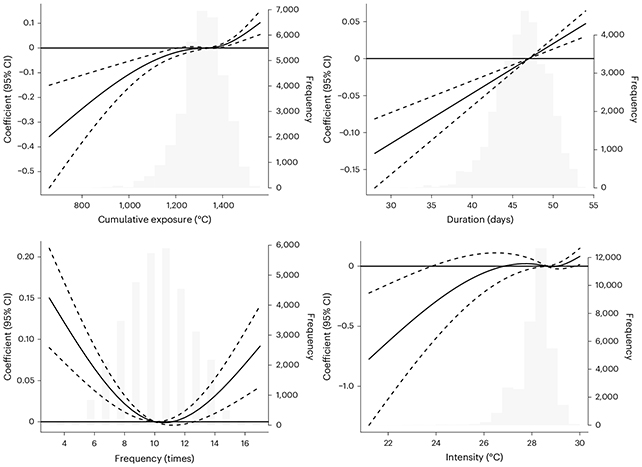As our planet steadily gets warmer, our bodies will need to cope with the stresses of higher temperatures. A new study shows that continued exposure to heat waves can age the body as much as regular drinking or smoking.
Led by a team from the University of Hong Kong in China, the investigation looked at data from 24,922 Taiwanese people who had undergone medical examinations between 2008 and 2022. The researchers compared their records with the number of heat waves each person had probably experienced based on their registered addresses.
Those who had been exposed to more heat waves had higher scores for biological markers associated with biological aging, the results showed. As opposed to chronological aging, biological aging is a measure of the functionality of tissues, organs, and cells.
Related: China's Clean Air Could Be Behind an Acceleration in Global Warming
The participants were sorted into four groups based on heat wave exposure, and each step up from group to group was associated with an extra 0.023 to 0.031 years in age. The researchers say it puts heat waves in the same category as smoking, drinking, diet, and exercise in terms of how much they can affect biological aging.
"Previous studies have highlighted the detrimental impacts of heat waves on age-related health conditions, particularly among the elderly, suggesting that aging might be an important modifiable factor in response to heat waves," write the researchers in their published paper.

"Understanding heat wave-aging associations helps to explain the potential mechanism for the health impacts of heat waves and facilitate population adaptation to climate change."
While this isn't an entirely new connection, and doesn't show direct cause and effect, it has the advantage over many earlier studies in that it measures heat waves over a long period of time in a large group of people.
The findings add to what we know about both heat waves and aging: that extreme heat can damage the body, and that biological aging can be affected by numerous factors, from obesity and diet to socioeconomic status.
While average temperatures are expected to rise around the planet in the coming decades, studies have shown that older people, those in more rural areas, and manual workers are often more exposed to heat than others.
"This study highlights the need for further policy development to address environmental inequalities and enhance population adaptation to the health impacts of heat waves," write the researchers.
The findings are also important in the context of aging populations. By 2050, some 16 percent of people worldwide are expected to be aged 65 or over, and as we all live longer lives there's an urgent need to make sure those extra years are lived as healthily as possible.
"This study highlights the need for targeted policies and interventions to strengthen adaptive capacity, delay aging, and promote healthy aging," write the researchers.
The research has been published in Nature Climate Change.
